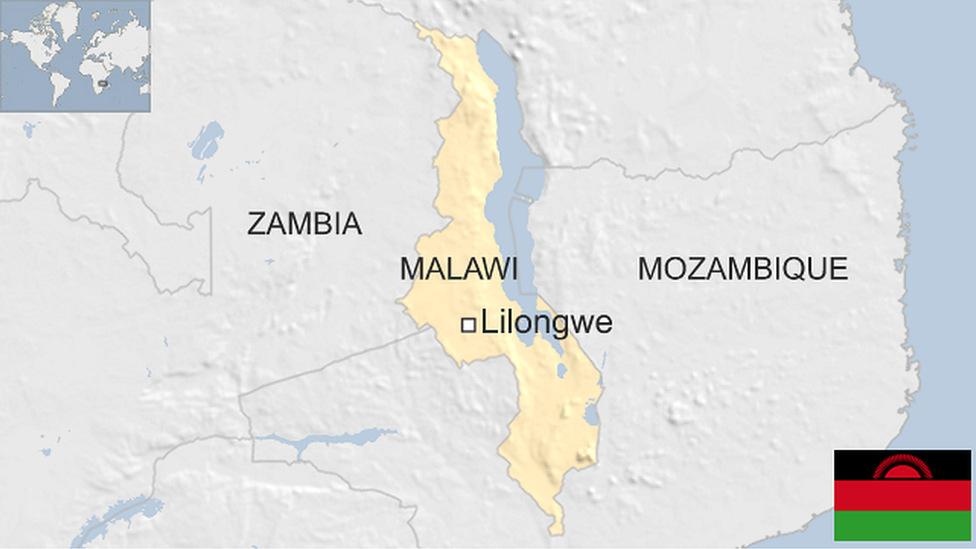Malawi election: Vote count starts in unpredictable poll
- Published
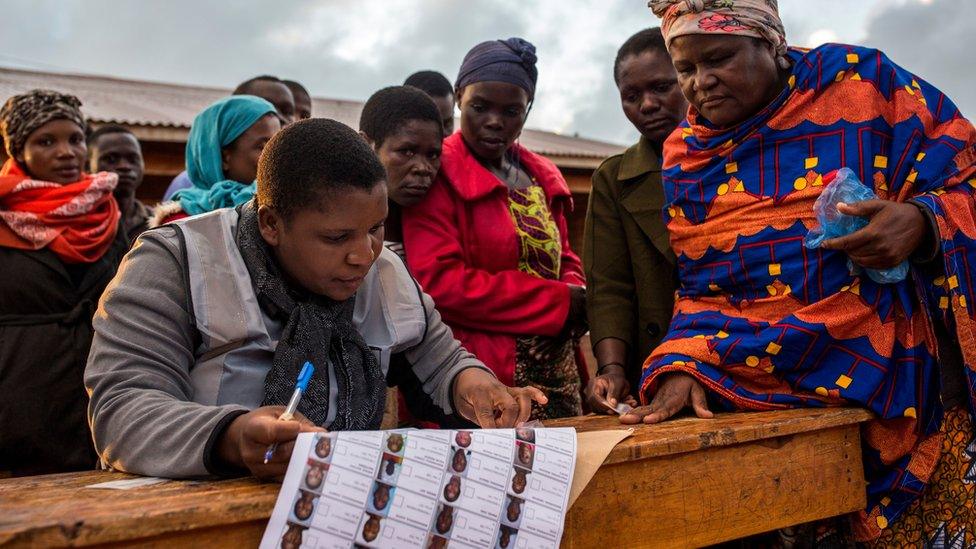
Polling stations opened early on Tuesday morning
In Malawi, election officials have started counting votes in what has been described as one of the country's most unpredictable presidential elections.
There were no significant reports of violence and the election appeared to be well organised, correspondents say.
There are seven candidates, but three are seen as having a realistic chance.
President Peter Mutharika is running for a second term, but he is being challenged by his own vice-president, Saulos Chilima, and Lazarus Chakwera.
The southern African country returned to multi-party elections in 1994 after 30 years of authoritarian rule.
The winning candidate just needs to get the largest share of the votes cast rather than more than 50%. Mr Mutharika won the last election in 2014 with 36.4%.

Who are the main candidates?
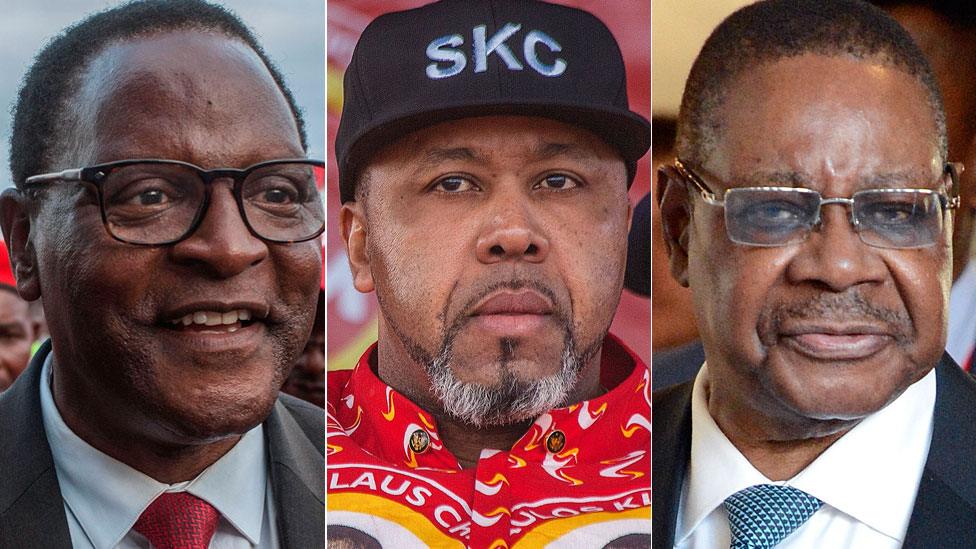
President Peter Mutharika (right) is facing a stiff challenge from Lazarus Chakwera (left) and Saulos Chilima (centre)
Lazarus Chakwera - Malawi Congress Party - hoping to revive the fortunes of the former ruling party
Saulos Chilima - UTM Party - current vice-president running against his boss
Peter Mutharika - Democratic Progressive Party - current president running for a second term

The nearly seven million registered voters were also electing a new parliament and local councillors.
"I'm very excited to vote since voting is my right," one woman in the capital, Lilongwe, told the BBC's Focus on Africa radio programme.
"We are all here to vote for our nation," another man said.
There were some delays, but at 07:00 local time (05:00 GMT), an hour after polls were supposed to open, voting was taking place in 97% of polling stations, the independent Malawi Electoral Support Network says.
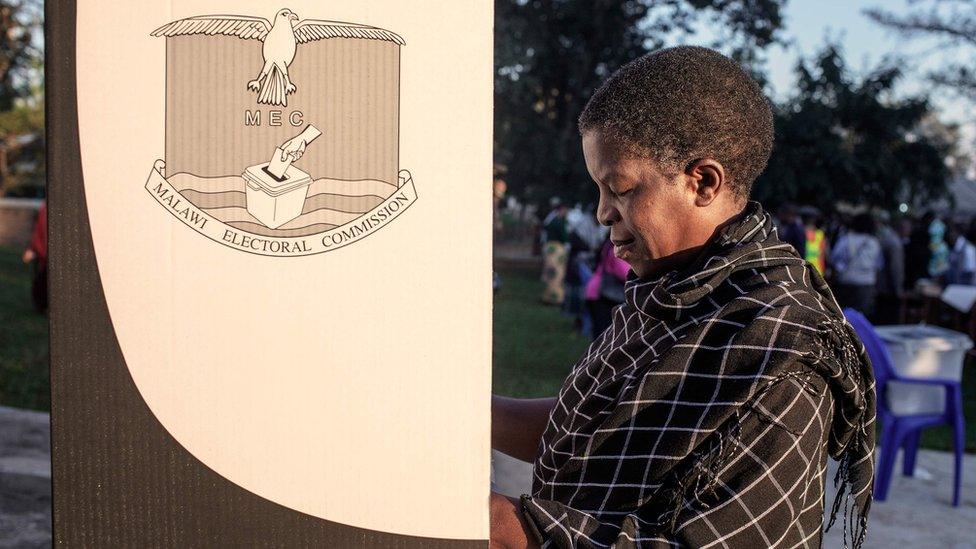
Voters had seven presidential candidates to choose from - all of them men
More than half of those who have registered are under the age of 34 and the youth vote may emerge as a significant factor.
Mr Chilima, who is 46, left the president's Democratic Progressive Party (DPP) last year. He fell out with Mr Mutharika after the president's fitness to run for office, at the age of 78, was questioned.
He has tried to appeal to young people in the promises he has made about addressing unemployment. Critics have said he will not be able to create one million jobs in his first year in office as he promised.

At the scene: Emmanuel Igunza, BBC News
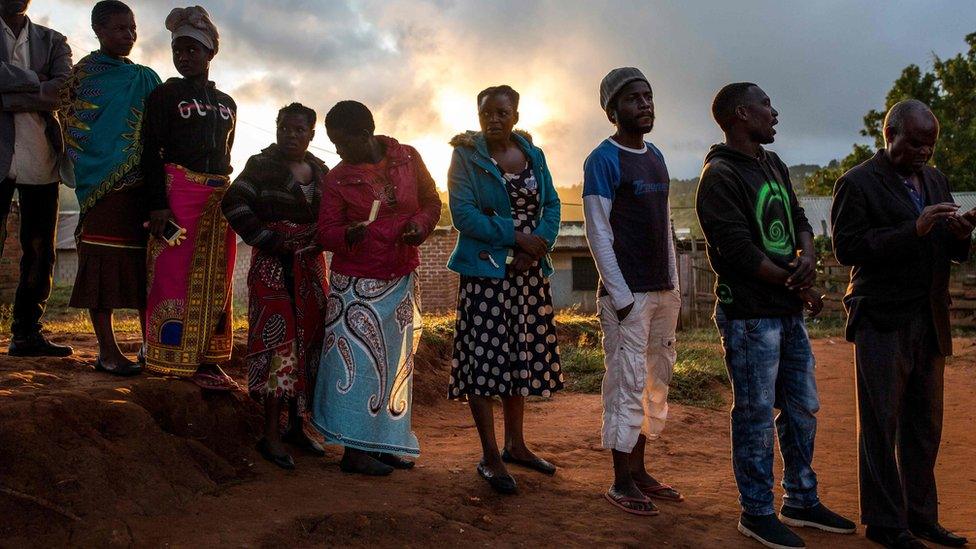
There have been long queues at polling stations across the country.
Many of the voters turned up before dawn, hoping to vote early and go back to work. Voting day is not a public holiday in Malawi.
At the tax office polling station in the commercial capital, Blantyre, voting started nearly half an hour late, angering hundreds who had come early.
When I arrived 20 minutes before polls opened, electoral officials were scrambling to set up the voting stations.
People voiced their frustration at the electoral commission chairperson, who was at the centre to oversee the start of voting.
She managed to calm the crowd, and voting has been going on smoothly, albeit slowly.

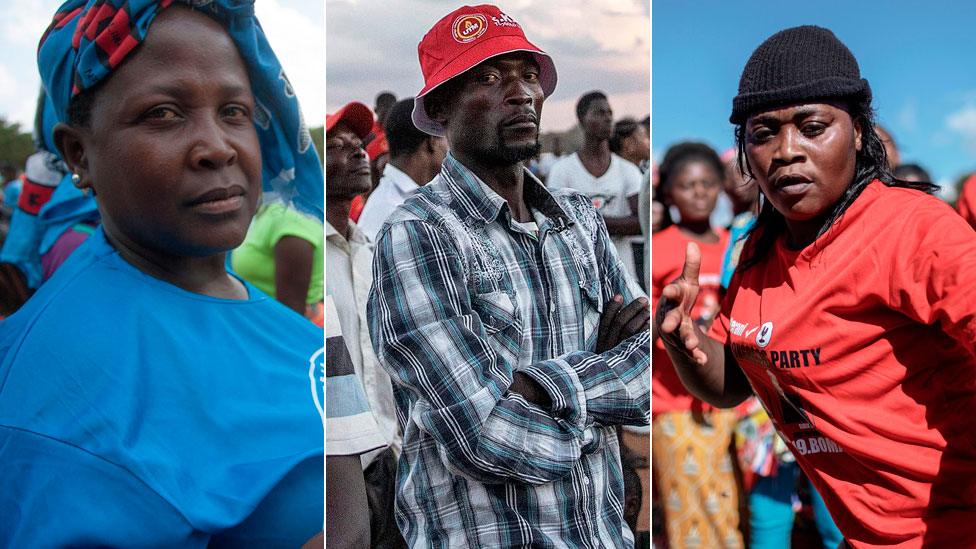
Supporters of the leading three parties, the Democratic Progressive Party (left), the UTM Party (centre) and the Malawi Congress Party (right) have been attending rallies ahead of the vote
On election day, Mr Chilima was initially unable to vote at his polling station in Lilongwe as his name was not on the register.
According to the electoral commission, Mr Chilima's name had been transferred to Chizumulu Island in Likoma district. He was eventually able to cast his ballot after contacting officials.
Mr Chakwera, 64, is the candidate for the resurgent Malawi Congress Party (MCP) - the official opposition.
The MCP led Malawi to independence in 1964 and governed the country as the sole legitimate party for three decades. But it has been out of power since multi-party politics returned 25 years ago.

Election in numbers
6.9 million registered voters
54% of them are between the ages of 18 and 34
56% of registered voters are female
All 7 presidential candidates are male
More than 5,000 polling stations across the country
Polls opened for 12 hours from 06:00 local time (04:00 GMT)

With high levels of poverty, the economy, and in particular the state of agriculture, has been a big issue.
The government has been praised for the farm-input subsidy programme to help poor farmers but opposition parties say it has been fraught with corruption, another major issue on the campaign trail.
The electoral commission has eight days to announce the result, but correspondents say it could be known as early as Wednesday evening.
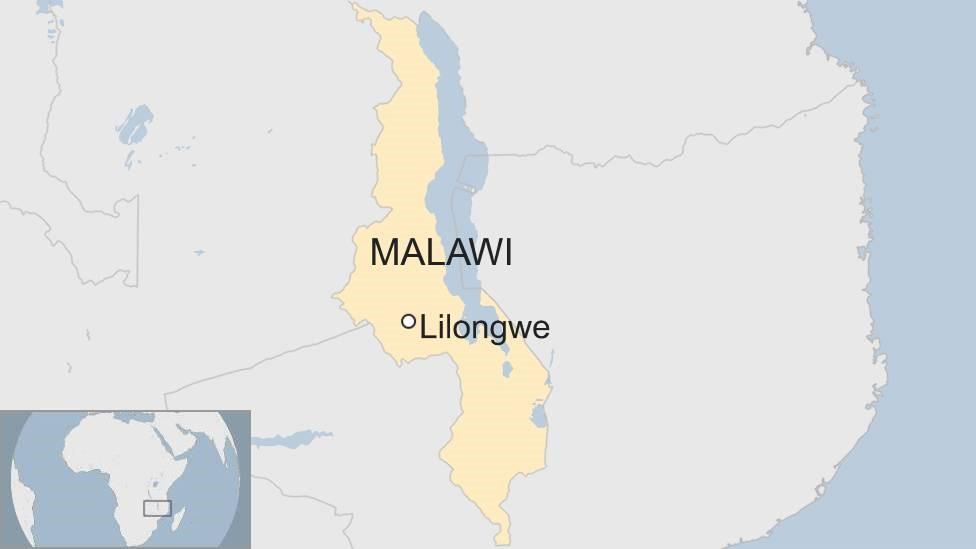
- Published20 May 2019

- Published21 February 2017
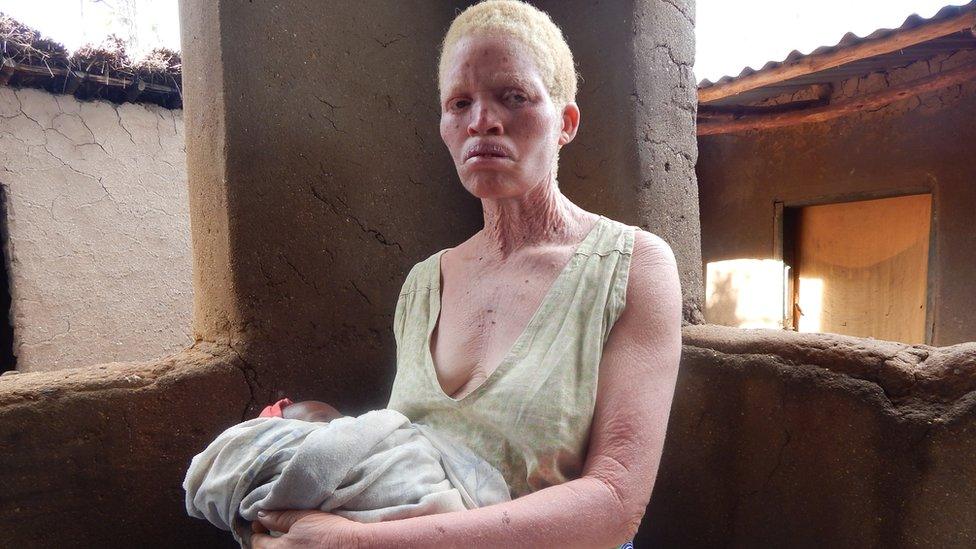
- Published13 August 2018
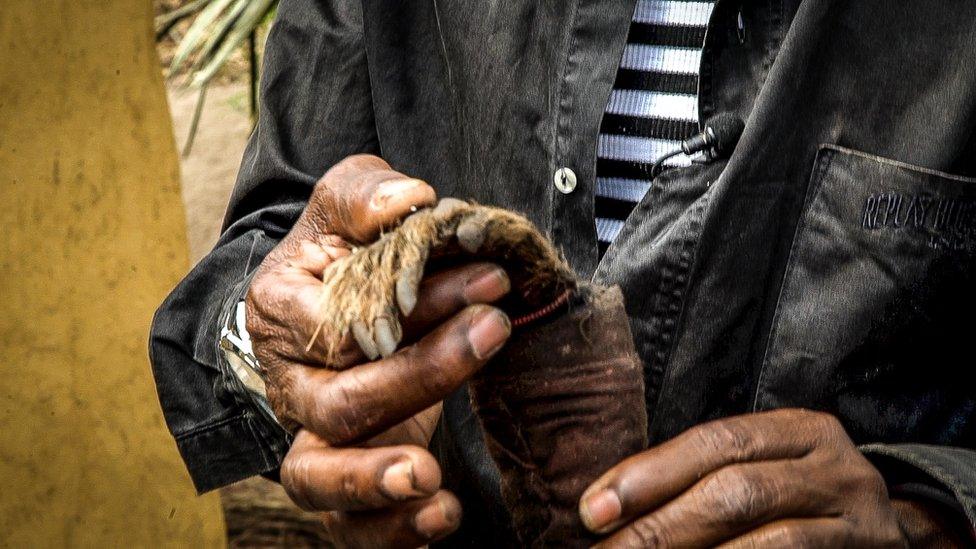
- Published5 May 2023
